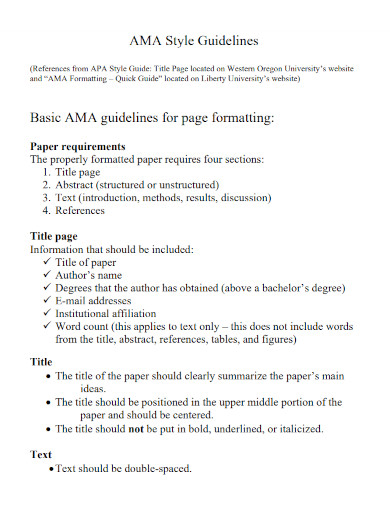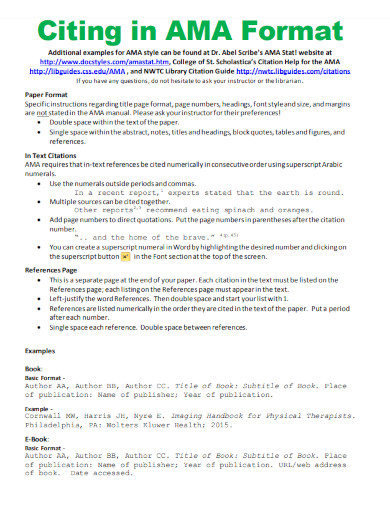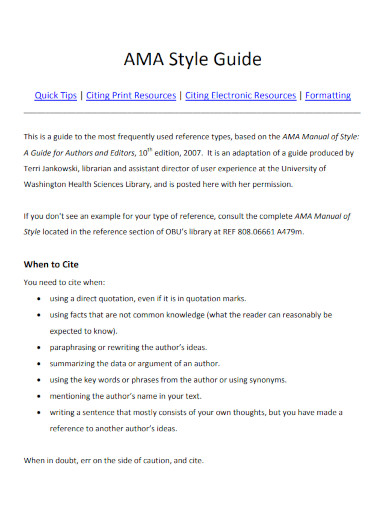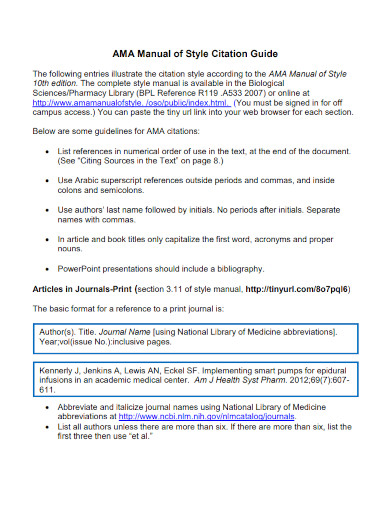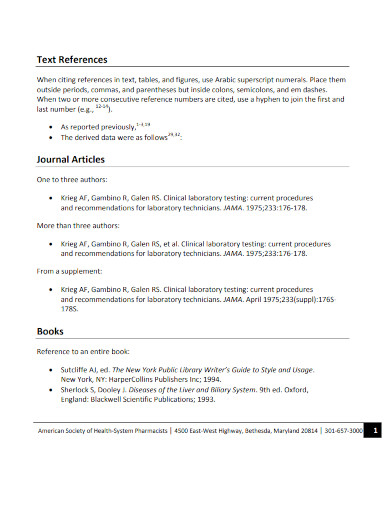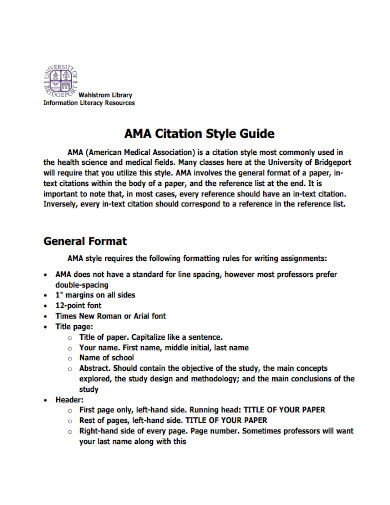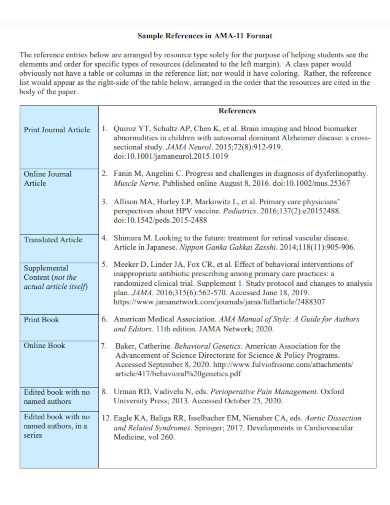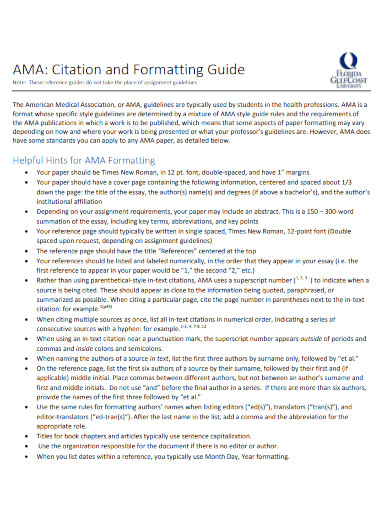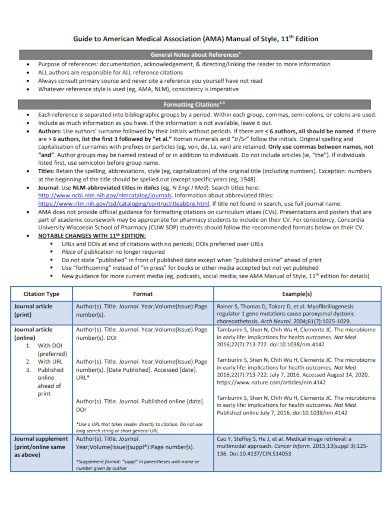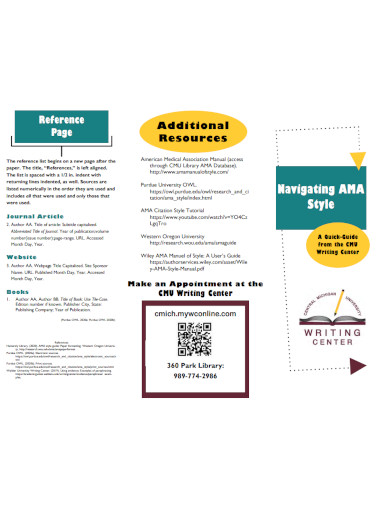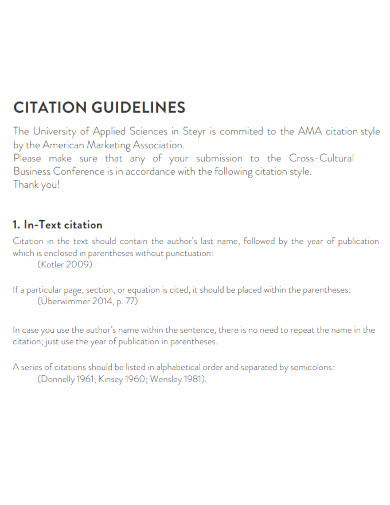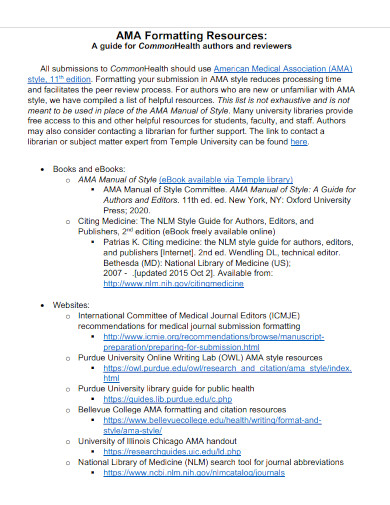11+ AMA Examples to Download
Referencing correctly in the text and the bibliography is an essential part of formatting a paper, but there are other considerations as well, such as adhering to the style guidelines outlined in the AMA Manual of Style. This covers things like utilizing headers and capitalizing them correctly, line spacing, margins, text style concerns (such using “one” or “1,” using AM or a.m. or A.M.), placement of page numbers, desired font and spacing for graphs, preferred size and form of tables, etc.
1. Basic AMA Guidelines for Page Formatting
2. Citing in AMA Format
3. AMA Format Style Guide
4. AMA Manual of Style Citation Guide
5. AMA Format Reference Style
6. AMA Format Citation Style Guide
7. Sample References in AMA Format
8. AMA Citation and Formatting Guide
9. AMA Style Manual Template
10. Quick Guide AMA Style Brochure
11. AMA Format Style Sheet
12. AMA Formatting Resources
What is AMA Format?
AMA format necessitates the use of numbered in-text citations that point to a reference list. This implies that the citations in the reference list are listed in the order in which they appeared in the manuscript. The American Medical Association (AMA) advises using a set of terms that may be found in the AMA Manual.
How to use AMA Format
When formatting your paper, be sure to follow any specific instructions supplied by your instructor or the journal you’re submitting to. If your assignment doesn’t mention any formatting, you should use the AMA’s general suggested guidelines:
Step 1: Margins
Leave one inch of white space around the text on all four sides of the page. The text must be left-aligned and not in a column format. The major texts like introduction paragraphs or conclusion paragraph should be double-spaced.
Step 2: In-text AMA Citation
There is no author name or date in parentheses in AMA Style; instead, a superscript Arabic number is added right after the cited author or content. Each reference is given a unique number that corresponds to its position in the text.
Step 3: Font and spacing
Always use single spacing for the abstract, notes, titles, headers, block quotes, tables, figures, and references. Keep the Times New Roman typeface at 12 points. Half-inch indents are the norm for new paragraphs.
Step 4: Page numbers and document title
Provide page numbers on every page of the document, including the title page. The title of your document should be in the upper left corner of each page.
FAQs
Is AMA and APA the same thing?
The Publication Manual of the American Psychological Association, Seventh Edition (APA), and the American Medical Association Manual of Style, Eleventh Edition (AMA), are the two most common style guides used in the nursing profession. The citation of references, both inside the body of the text and in the list of references that should be included at the end of the article, is one of the most fundamental aspects that differentiates the APA style rules from those of the AMA.
How to tell the difference between AMA APA Chicago and MLA citations?
The creation of the title page examples, citations inside the body of the text, and reference lists (check out examples here) are the primary areas in which the MLA, APA, and Chicago Style formats diverge from one another. Notes-bibliography and author-date are the two citation formats that Chicago provides.
Why use AMA format?
When writing academic papers in the domains of medicine, health, and other life sciences, researchers almost always refer to the AMA Manual of Style as their primary source of style guidance. While many academic science-based publications have author requirements, the majority adhere to certain AMA regulations, particularly those regarding parenthetical citations and references list.
When writing your next manuscript, project, or book journal that requires the AMA handbook of Style format, be sure to abide by these rules and requirements. You can also check out other formats like some examples of MLA Paper Format.



